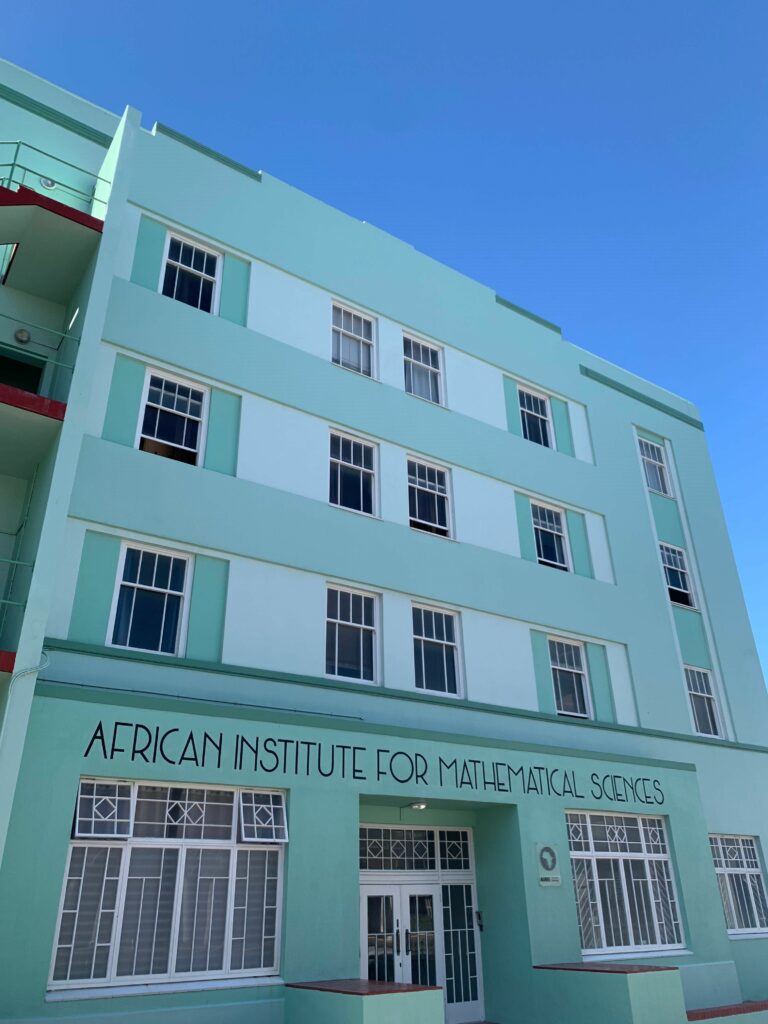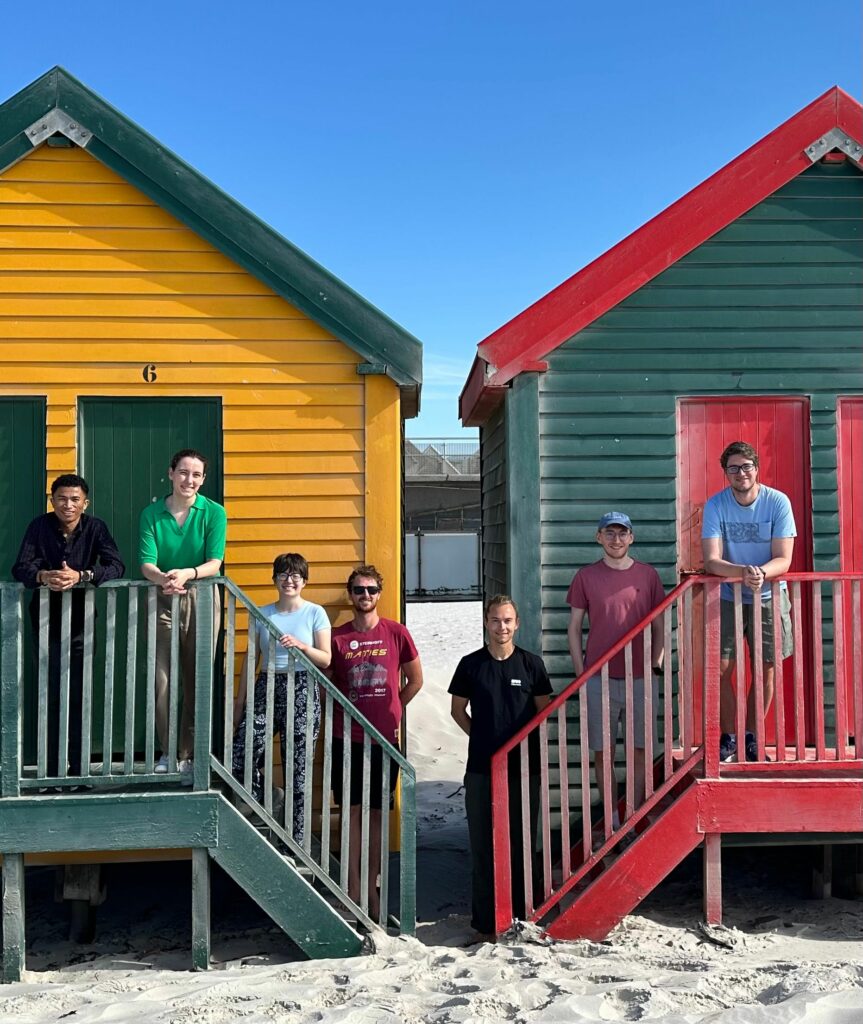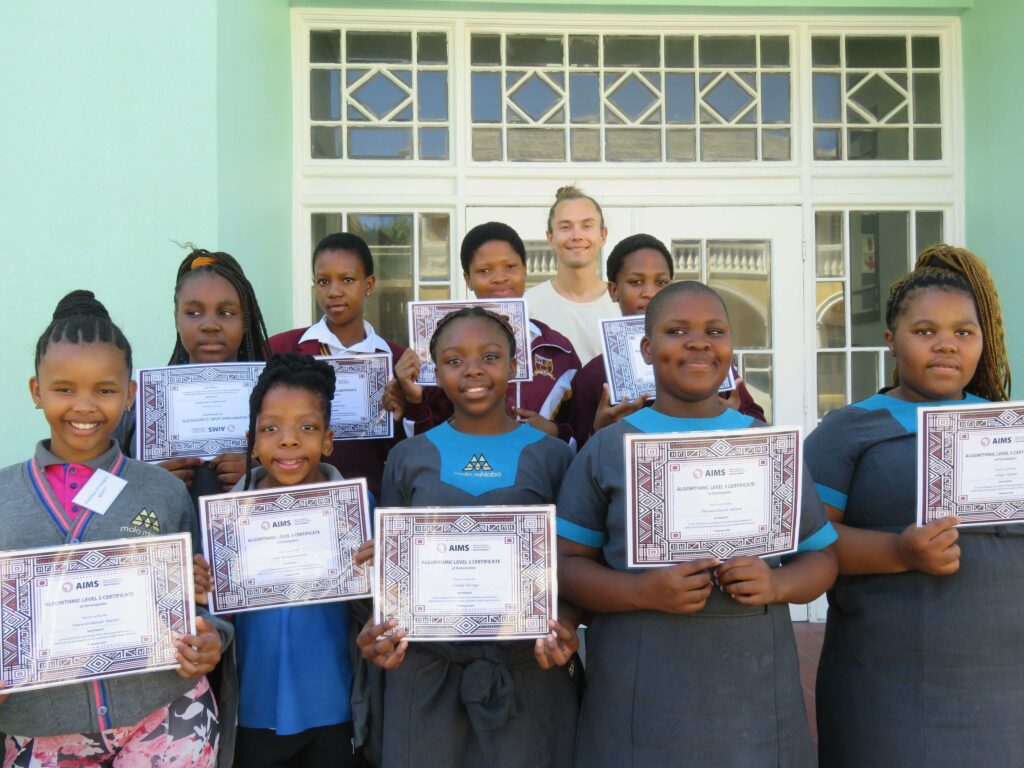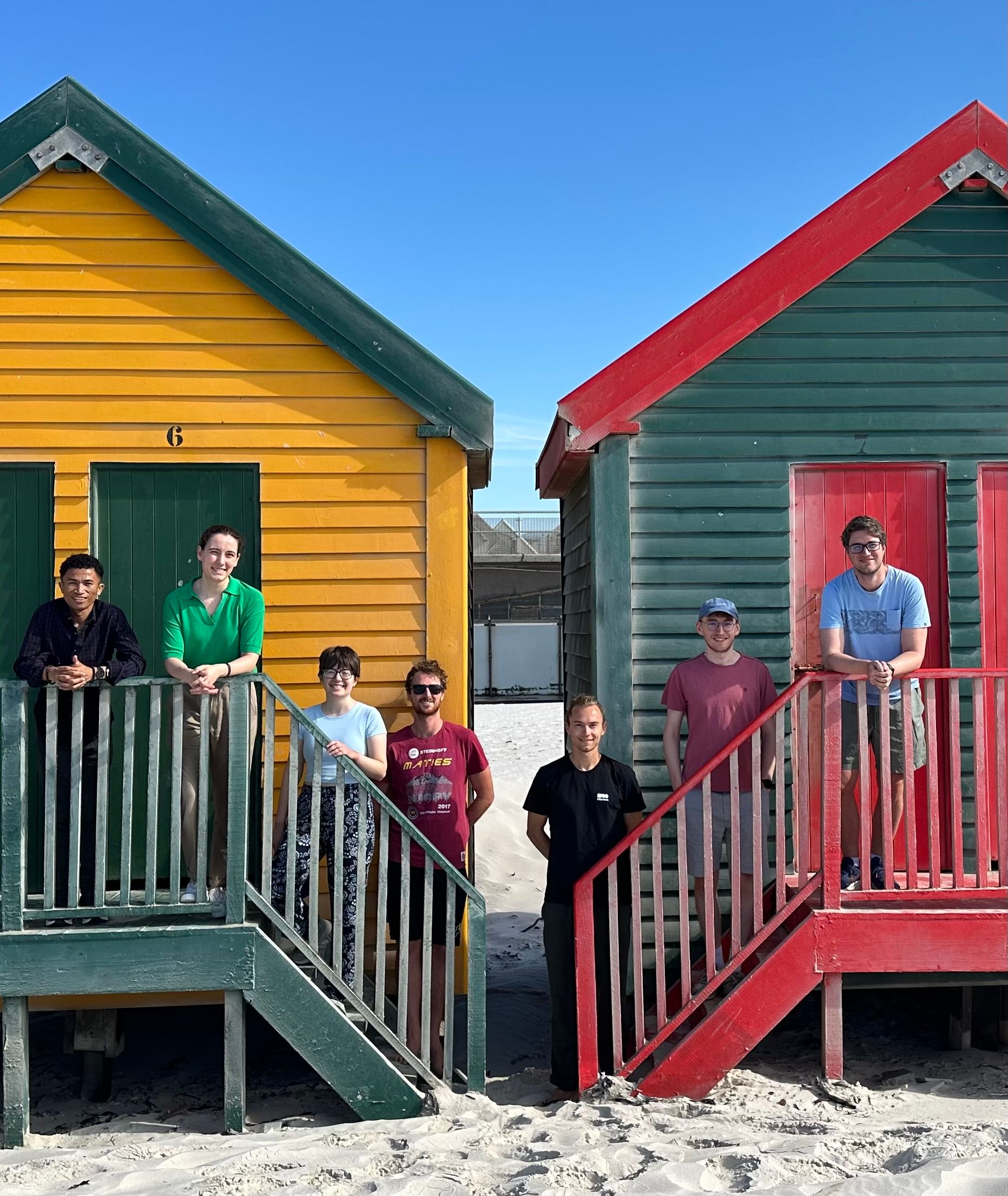From January to March 2025, Dr. Steffen Knoblauch undertook a post-doctoral research visit at the African Institute of Mathematical Sciences (AIMS) in Cape Town, South Africa. His research focused on integrating Earth Observation data with bioacoustics, building on his PhD work in spatiotemporal mosquito monitoring for diseases such as Dengue.

The primary focus of his stay was the development of deep learning software for the automated classification of animal sounds. Steffen envisions the future of local dengue control as a hybrid approach that combines satellite-based Earth Observation with so-called “smart mosquito traps” – devices equipped with microphones that use acoustic sensing to detect and count mosquitoes in near real-time based on their wingbeat sounds. Compared to traditional surveillance methods, this bioacoustic sensor technology could significantly improve the temporal resolution of mosquito distribution maps, allowing for faster and more targeted dengue interventions. While Steffen’s PhD research primarily focused on the spatial accuracy of mosquito mapping, one of the goals of Steffen’s postdoc is to enhance the temporal dimension, enabling dynamic, time-sensitive mosquito monitoring in the future.

In addition to his research, Steffen actively contributed to the prestigious AI for Science Master’s program at AIMS, sponsored by Google DeepMind. Together with Professor Joacim Rocklöv and Marina Treskova from the Interdisciplinary Center for Scientific Computing (IWR) at Heidelberg University, he delivered a lecture titled “AI in Public Health.” Steffen also participated in the AIMS School Enrichment Centre (AIMSSEC) program, where he taught both elementary and high school students from township communties. AIMSSEC is dedicated to supporting young learners from under-resourced backgrounds in Africa, inspiring them to pursue careers in mathematics and science, and equipping them with the skills needed to tackle some of the world’s most pressing challenges.

On February 13, 2025, Steffen was invited to give a guest lecture at the Centre for Epidemic Response and Innovation (CERI), part of the Climate Amplified Diseases and Epidemics (CLIMADE) initiative. His talk, “Earth Observation and Bioacoustics for Public Health,” outlined his vision for how technology and AI can support proactive disease prevention and control.
AIMS is internationally recognized for promoting mathematical excellence and interdisciplinary collaboration, bringing together young scientists from across Africa to address global issues related to health, climate, and the environment. During his visit, Steffen built meaningful connections within the African research community in deep learning, including organizers of the Deep Learning Indaba conference, and engaged with other visiting lecturers at AIMS.
Special thanks go to Prof. Dr. Ulrich Paquet, Director of AIMS South Africa, and to Dr. Michael J. Winckler, Administrative Director of the Interdisciplinary Center for Scientific Computing (IWR) in Heidelberg, for their invaluable support in making this research visit possible.



